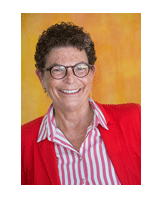Researchers at the University of San Francisco have found that a protein produced by human cytomegalovirus (HCMV) called cmvIL-10 promotes the growth and spread of breast cancer cells, increasing the likelihood of metastasis. The cmvIL-10 protein is frequently found at higher than normal levels in the blood of cancer patients.
This study will allow researchers to evaluate cmIL-10 blood levels in breast cancer patients and compare cmIL-10 levels in healthy women and women diagnosed with breast cancer within the last 5 years. If the study finds that some breast cancer patients have higher levels of cmIL-10, it's possible that the test might be useful for determining whether some patients might benefit from anti-viral drug treatments. If levels are higher in patients with more advanced breast cancer, then it's possible that screening for cmIL-10 could help doctors monitor whether metastases are more likely to develop or whether a woman's cancer is responding to treatment. This study was launched to the Army of Women on September 15th, 2015 and the research team is still looking for people to participate.


